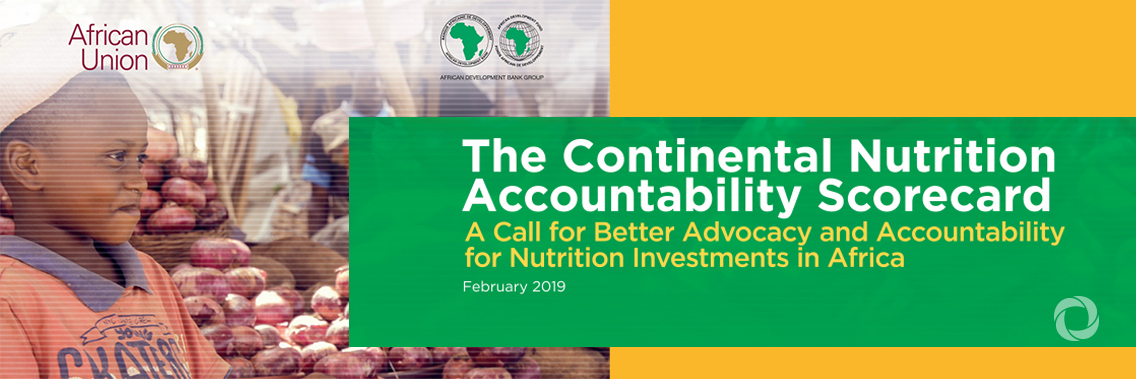The Continental Nutrition Accountability Scorecard, described as a ‘game changer’ by stakeholders, was developed to measure progress made by African Union member states to achieve nutrition security.
“As you take a look at the Nutrition Scorecard in front of you, you will notice there’s a lot of red: which means we are not making progress. The red colors and the statistics they carry are more than numbers,” Adesina told the audience. “These colors speak: they speak of the cries, hopes, and aspirations of millions of malnourished kids asking us to make the right decisions for them, to secure their future. The scorecard speaks, and if you listen very carefully you can hear the voices of these children.”
Attendees at the launch included Mokgweetsi Eric Keabetswe Masisi, President of the Republic of Botswana, members of the diplomatic corps, health ministers from Malawi, Botswana, Kenya, Senegal, Gambia, Ghana, and leading development partners.
Healthy children learn more and better, and people with adequate nutrition are more productive and can create more opportunities to break the cycles of poverty of hunger.
About 58 million children in Africa under the age of 5 years are too short for their age (stunted); about 14 million weigh too little for their height (wasted) and 10 million are overweight.
Africa already loses $25 billion per year in costs attributed to child morbidity and mortality, impaired cognitive, physical, and economic development caused by malnutrition. Yet these losses are almost entirely preventable.
The share of global Official Development Assistance (ODA) spent on nutrition is very low and has recently declined to only 1%. Through several initiatives, the African Development Bank is pointing the way and building a strong alliance of partners for Africa to achieve food and nutritional security in the next ten years.
For instance, working with Big Win Philanthropy and the Aliko Dangote Foundation, the African Development Bank last December unveiled a new Multi-Sectoral Nutrition Action Plan that aims at raising investments towards reducing stunting by 40% in African children aged under 5 by 2025.
His Majesty King Letsie III of the Kingdom of Lesotho and African Union champion for nutrition described the scorecard as a very important tool that African leaders should use to combat nutrition on the continent.
The Continental Nutrition Accountability Scorecard is produced by the African Leaders for Nutrition Initiative (ALN), headquartered at the Bank, in collaboration with partners, including the Global Panel on Agriculture and Food Systems for Nutrition, and the Bill and Melinda Gates Foundation.
Commissioner for Social Affairs at the African Union Commission, Amira Elfadil, explained that the initiative will encourage dialogue with African leaders for new financial and policy commitments on nutrition to deliver people-focused socio-economic returns.
Health experts say the most important time for good nutrition is in the 1,000 days from the beginning of a woman’s pregnancy to the second birthday of her child.
The Bank has proposed some potential quick wins: The private sector should incorporate healthy and nutritious foods into the food supply chain. The public sector should double up support for food and nutrition intervention programmes. And national governments should make access to quality and nutritious food a basic human right – protected by national constitutions.
Read and download the Continental Nutrition Accountability Scorecard
Original source: AfDB
Published on 20 February 2019

